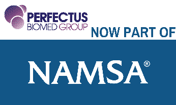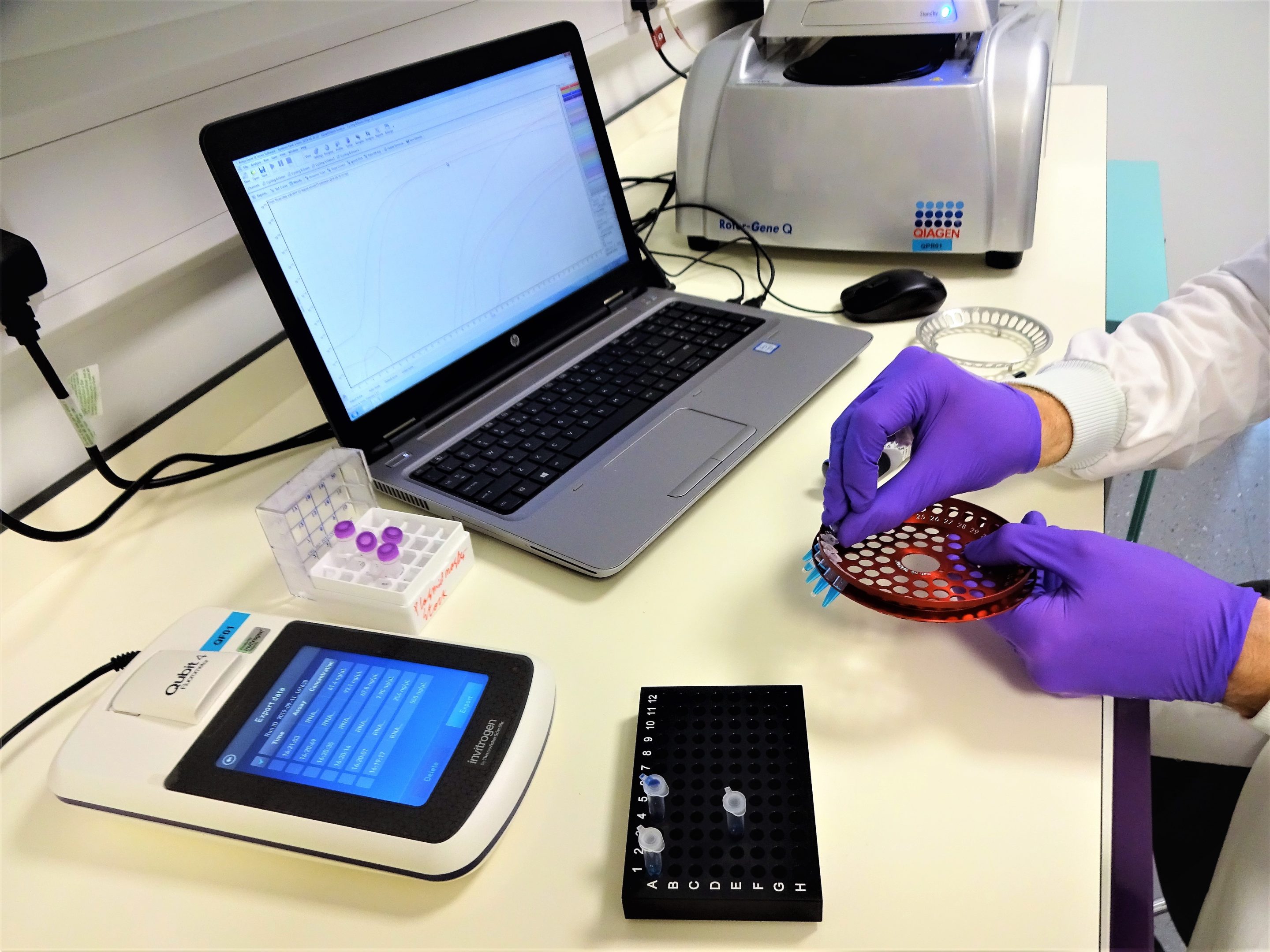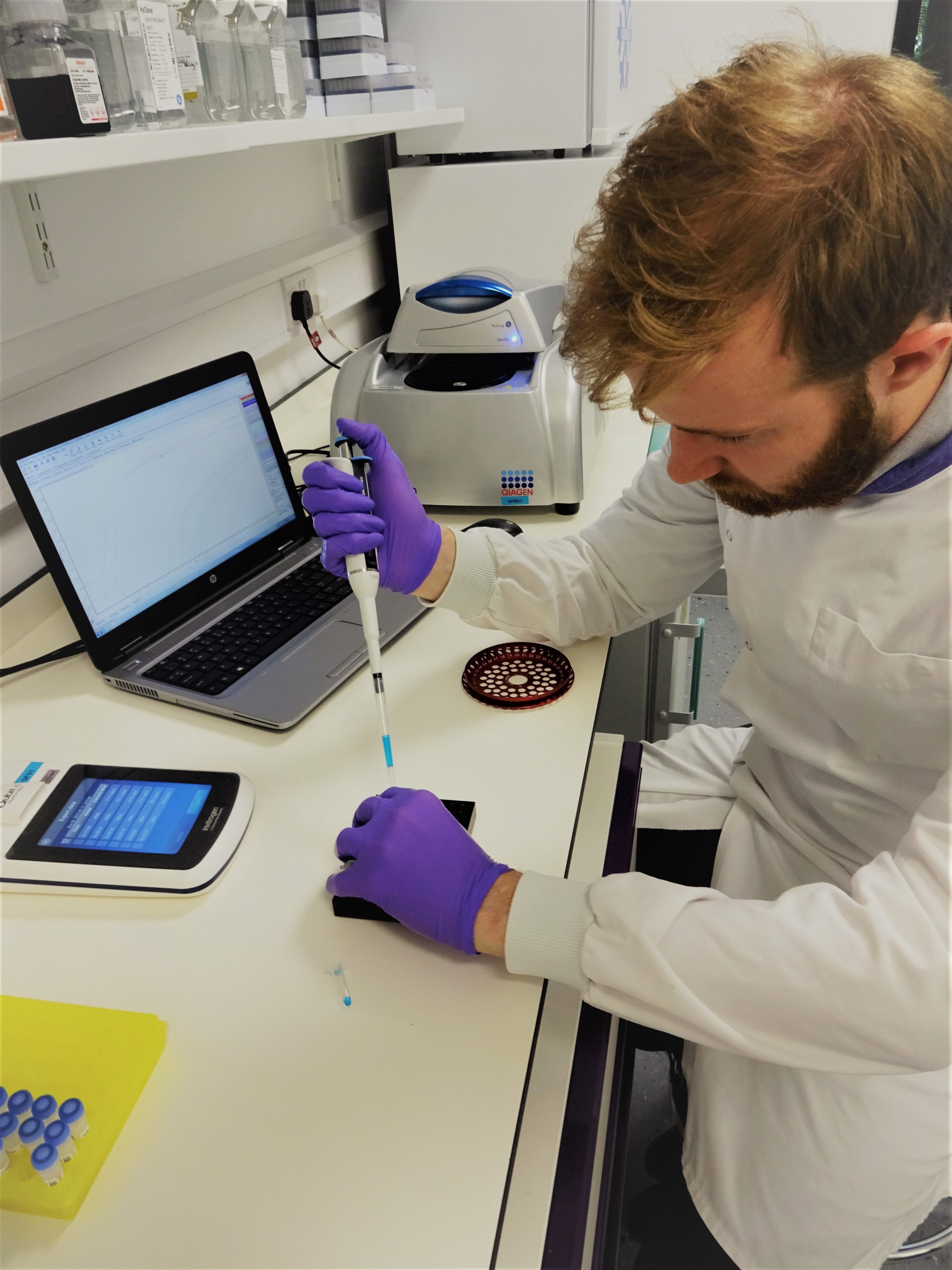Perfectus Biomed provide molecular support in addition to our typical culture-based studies, providing cell line authentication, pathway targeting and screening of samples for the presence of pathogenic viruses and bacteria. Molecular assays include:
- Cell line authentication (human STR profiling assays)
- Non-human cell line identification (CO1 Barcode assay)
- Mycoplasma contamination detection/sterility (qPCR)
- Murine/human/xenotrophic virus pathogen detection (qPCR)
- Bacterial species identification using Sangar sequencing
- Primer design
Cell Line Identification
Authentication of cell lines and other key biological materials enhances reproducibility of research findings through increased scientific rigor and transparency. Authentication plans are therefore required for many grant applications to ensure authenticity of the cell line throughout multiple timepoints during continuous use in projects.
During a project, cell line authentication is recommended when:
- A new cell line is established or acquired
- A new series of experiments have begun
- Cell lines are routinely passaged
- Inconsistent cell behaviour or unexpected results are seen
- Passage number is limited as cell lines mutate over time
- You are preparing to publish
- Cell stocks are being frozen to verify purity
Best practice guidelines recommend cell line testing:
- Prior to submitting a paper or beginning a new grant
- To prevent cross-contamination
- If cells give erratic and non-reproducible results
- If a change in morphology or growth characteristics are observed
- When creating a new cell line
- When receiving cells from a non-accredited laboratory/provider
- When creating cell stocks for storage
What we offer:
Perfectus Biomed work to the ATCC ASN-0002-2011 standard, with the ability to test at 24 loci using Promega’s Geneprint 24 system to prevent misidentification of closely related cell lines. The 24 loci that will be tested include: TH01, TPOX, vWA, Amelogenin (for gender identification), CSF1PO, D16S539, D7S820, D13S317 and D5S818. These are the nine markers as outlined within ASN-0002-2011. We provide clients with a signed report that covers the basic requirement for grant/journal submissions. Reports will include the electropherogram analysis and interpretation of the Short Tandem Repeat (STR) profile compared to the published standard profile, where required.
PATHOGEN DETECTION:
Mycoplasma can attain high densities within cell cultures with an absence of visible morphological changes. Undetected contamination by mycoplasma species or other pathogens invalidate work, and so regular sterility testing is critical for continuous cell lines.
Pathogen detection testing is recommended:
- When creating a master cell bank or working cell bank
- Before beginning a new series of experiments
- When the cell line behaves abnormally
- Every two months that the cell culture is actively growing
- Prior to publication of experimental data
Please get in touch or visit our website to find out more.





